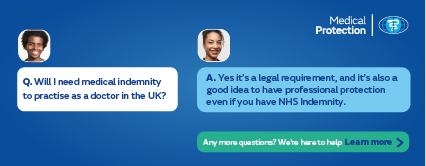
Medical Examiner
Kettering General Hospital NHS Foundation TrustSearch for more jobs in Kettering
Job overview
The role of Medical Examiner was proposed as a result of the Shipman Inquiry & several other high-profile inquiries, to provide independent scrutiny of the circumstances of all non-coronial deaths, both within acute hospitals & those that occur in the community. Medical Examiners offer one session per week alongside their other senior medical posts, either as a GP or Senior Hospital Doctor. During this session, they examine the circumstances of hospital & community deaths based on available information, liaise with Attending Practitioners to agree on a cause of death or refer to the Coroner when appropriate. They provide the bereaved an opportunity to ask questions & understand when to refer cases for governance review. They may also provide advice to the Coroner to assist in determining whether a Coroner’s investigation is required. Medical Examiners countersign the Medical Certificate of the Cause of Death after it is completed by the Attending Practitioner.
Additional training is required to equip Medical Examiners with the detailed knowledge needed for the role. This training is available online through E-Learning for Health & requires a commitment to ongoing learning.Two posts are available for one session each, on Tuesday, Wednesday, or Thursday mornings. The successful applicants will join the North Northamptonshire Medical Examiner Service, based at Kettering General Hospital. This department includes 10 Medical Examiners and 3 Medical Examiner Officers.
Main duties of the job
The role covers all acute hospital deaths at KGH and non-coronial deaths within the North Northamptonshire district. Two Medical Examiners are needed to replace retiring members, each for one session on Tuesday, Wednesday, or Thursday mornings.
Medical Examiners act as independent reviewers of patient deaths, liaising with the attending team or General Practitioner to ensure accurate completion of the Medical Certificate of the Cause of Death (MCCD) or referring cases to the Coroner as necessary. They communicate with the bereaved to address any concerns, collaborate with Medical Examiner Officers, Mortuary Staff, the Coroner, and Registration Services, & highlight learning opportunities through governance processes. They may also recommend more detailed reviews, such as SJR's.
Applicants must have a minimum of 5 years post-full registration, & commit to a regular weekly session. GPs & experienced hospital doctors in substantive career posts are encouraged to apply. Completion of mandatory training via e-Learning for Health is required before the interview, alongside a commitment to complete the national Face-to-Face training & additional modules as needed.
Medical Examiners maintain professional independence while scrutinising deaths but are accountable to the Medical Director & report to the Lead Medical Examiner & the Regional & National Medical Examiners.
Detailed job description and main responsibilities
To ensure compliance with the legal and procedural requirements associated with the current and proposed reformed processes of certification, investigation by coroners and registration of deaths.
- An empathetic and sensitive approach when liaising with bereaved relatives.
- To scrutinise the certified causes of death offered by attending doctors in a way that is proportionate, consistent and compliant with the proposed national protocol.
- To discuss and explain the cause of death with next of kin/informants in a transparent, tactful and sympathetic manner. It is anticipated that such discussions will be predominately conducted through telephone conversations where barriers to understanding information may exist.
- To ensure that all users of the ME system are treated with respect and are not discriminated against on the grounds of sex, race, religion, ethnicity, sexual orientation, gender reassignment or disability.
- To maintain comprehensive records of all deaths scrutinised and undertake analysis to provide information to the National Medical Examiner’s office.
- To participate in relevant clinical governance activities relating to death certification including audits, mortality review processes and investigations regarding formal complaints about patient care.
- To support the training of junior doctors in their understanding of death certification and promote good practice in accurate completion of MCCDs.
- To work with medical examiner officers (MEOs), delegating duties as appropriate.
- To engage with lead ME and lead MEO for the region.
- To adopt a collaborative working relationship with other MEs by sharing experiences and expertise to support peer learning and set uniform standards of service delivery.

